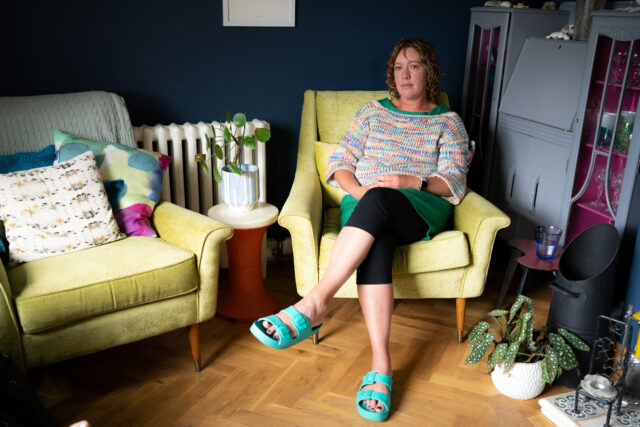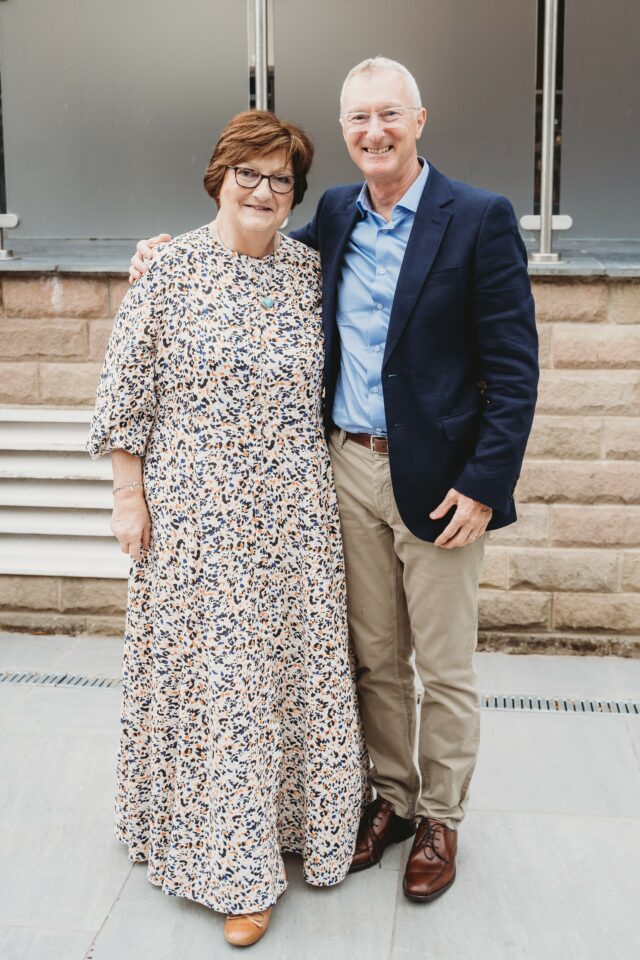Voices from the UK's pulmonary hypertension community
Ali Banham, 61, lives in Buckinghamshire. She moved into a bedsit to shield alone and was diagnosed with PH during the second lockdown.
“I was classed as clinically extremely vulnerable right from the start of the pandemic, because I had sarcoidosis, and I had mixed feelings about being told I was vulnerable to the virus.
In one respect, it was a relief because it meant I could work from home all the time, but on the other hand, it was extremely isolating.
I had been in hospital for two months with pancreatitis and was discharged the day before we went into lockdown. My daughters were so worried about me picking up covid, because I was so vulnerable, so we decided to swap properties.
I had been living with one daughter in my three-storey house, and the other lived in a bedsit. By swapping, it meant they could work and lead a more ‘normal’ life together while I isolated. It was about survival; theirs as well as mine.
I was by myself in the bedsit, and it was extremely isolating.
There was no television, and I learned you don’t need possessions. I had some books, cross-stitching and puzzles, and I could stream things via my computer, but that was it.
Luckily the bedsit had a small plot of land, so I turned it into a garden. I couldn’t have survived without that outside space.
One poignant memory for me was digging a flowerbed and coming across a load of worms. I started to throw them to a nearby thrush, and before long it was sitting on my foot, taking them from me.
Everywhere was so quiet, and that wouldn’t have happened in a normal pace of life. There are good memories, like that, but bad ones too.
I was used to sitting in my home looking out into the woods through French windows, but here, it was like a prison cell. The windows were so high that you couldn’t see out at all when you were sitting.
I couldn’t even take part in the Thursday night clapping for the NHS because I couldn’t lean out the window. I could hear it, but I couldn’t take part, so I felt totally isolated from it.
My government food boxes were still being delivered to my home address, so a friend would kindly drop them round. My daughters would take out the nice things because I’m so overweight, which I thought was hilarious. My friend would then replace all the missing bits without telling the girls.
That’s the sort of social history that needs to be recorded because it was so funny.
I was in the bedsit alone for six months and I learned a lot about myself during that time.
I realised I needed strict structure in my day to keep my sanity and being able to continue working helped with that.
Mealtimes were planned like a military operation, just to give me something to do. Social media was great because I kept in touch with all my friends.
I’ve got to know technology a lot better. Whilst I ‘did’ technology before, I’d be lazy in learning new techniques, but suddenly there was no choice.
If I wanted to remain in contact, as far as I was concerned, I had to learn it. That was a good thing.
I was back living in my home when I was finally diagnosed with PH in November 2020, during the second lockdown. There was a delay getting into the system, and telephone and video appointments were the norm for me as I didn’t know any different.
If it all happened again, and with the benefit of hindsight, I would still have made the decision to swap houses with my daughter.
The girls needed to go out to work, and they were so worried about me dying if I got covid. Their grandma was ill at the time, and my husband and I had just split up, so they couldn’t have coped with any more trauma – especially if they felt they had caused it.
It was a bit like wartime; you just had to do what you had to do.
I’m one of these people where the glass is always half full rather than half empty and that definitely helped me.
Another positive is that the whole experience has made me much more confident in my own company. Before the pandemic, and before the PH, I was playing sports or socialising with people every night of the week.
It was a good leveller to say to myself ‘look, you’ve got to change your lifestyle anyway, this is a good opportunity. What are you going to do and how are you going to do it?’ That taught me a lot.”
~Ali told her story to the PHA UK in the summer of 2022~

KatieLife is short, and that is exactly what the last couple of years have shown us
SarahThe lack of control is probably what I struggled with most
MarkI wasn’t willing to go back to work and put her in danger

JulieEvery corner I turned during the pandemic was scary, but my specialist centre gave me hope